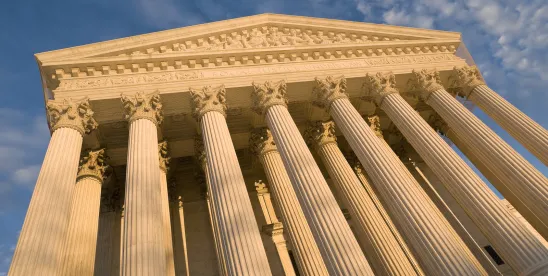The U.S. Supreme Court recently delivered a significant ruling in Stamatios Kousisis, et al. v. United States, affirming that a defendant can be convicted of federal fraud for inducing a transaction through materially false pretenses, even absent an intent to cause economic harm. This unanimous decision clarifies the scope of the federal wire fraud statute and carries substantial implications for white-collar criminal prosecutions against government contractors.
Background of the Case
Stamatios Kousisis and his company, Alpha Painting and Construction Co., secured contracts from the Pennsylvania Department of Transportation (PennDOT) for bridge painting projects. These contracts mandated that a portion of the work be subcontracted to Disadvantaged Business Enterprises (DBEs), as per federal regulations tied to the Infrastructure Investment and Jobs Act. Kousisis and Alpha claimed compliance by funneling payments through Markias Inc., a certified DBE, which merely acted as a pass-through entity. In reality, non-DBE suppliers performed the work, and Markias added a markup to the invoices.
The government charged Kousisis and Alpha with wire fraud and conspiracy, arguing that they fraudulently induced PennDOT to award the contracts under false pretenses. The defendants contended that since the work was completed and PennDOT suffered no financial loss, there was no fraud.
The Supreme Court’s Decision
Justice Amy Coney Barrett authored the majority opinion, holding that under federal fraud statutes, it is sufficient to prove that a defendant used materially false pretenses to induce a transaction, regardless of whether the victim suffered economic harm. The Court emphasized that the focus is on the defendant’s intent and the materiality of the misrepresentation, not solely on economic loss to the victim. This aligns with the Court’s reasoning in Ciminelli v. United States (2023), which clarified that fraud statutes protect property interests and that deprivation of such interests can occur through deceptive means, even without direct financial harm.
Concurring Opinions
Justice Clarence Thomas concurred, expressing skepticism about whether the misrepresentations were material, given that DBE requirements may not pertain directly to the core contractual obligations. Justice Sonia Sotomayor concurred in the judgment, highlighting that PennDOT explicitly stated noncompliance with DBE provisions constituted a material breach, potentially jeopardizing federal funding. Justice Neil Gorsuch concurred in part, cautioning against broad interpretations of fraud that could criminalize conduct traditionally addressed through civil remedies.
Implications for Government Contractors and White-Collar Prosecutions
This ruling reinforces the government’s ability to prosecute fraudulent inducement cases under federal fraud statutes, even when no economic harm is evident. It underscores the importance of materiality in assessing fraudulent conduct and may influence how courts evaluate similar cases involving misrepresentations that affect contractual decisions. The decision also signals the Court’s willingness to uphold certain applications of fraud statutes, distinguishing between deceptive practices that undermine contractual integrity and those that result in tangible financial loss.
Conclusion
The Supreme Court’s decision in Kousisis v. United States affirms that materially false representations used to induce contractual agreements can constitute federal fraud, even absent economic harm to the victim. This clarification of the wire fraud statute’s scope is pivotal for legal practitioners, government contractors, and entities engaged in federally funded projects, emphasizing the legal risks associated with deceptive practices in contractual dealings.




 />i
/>i
